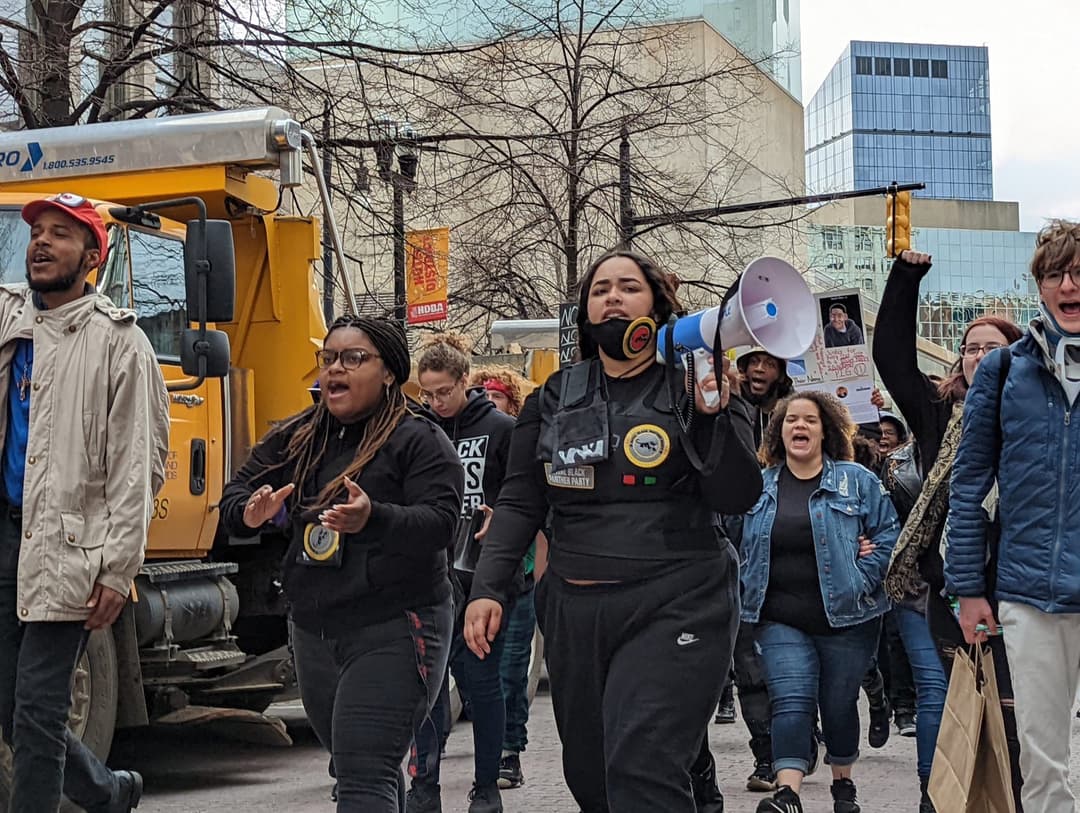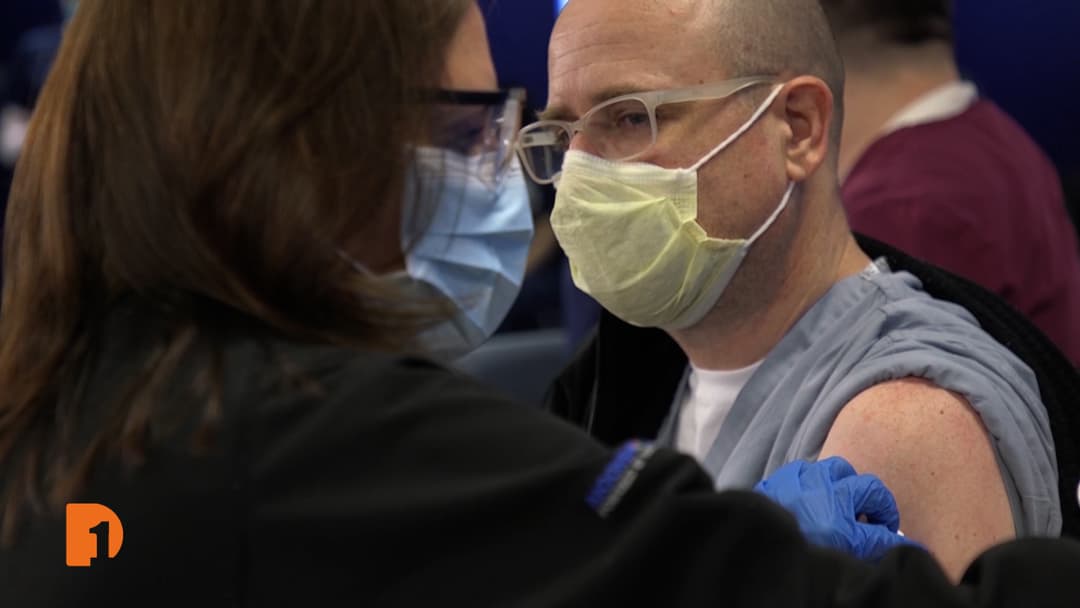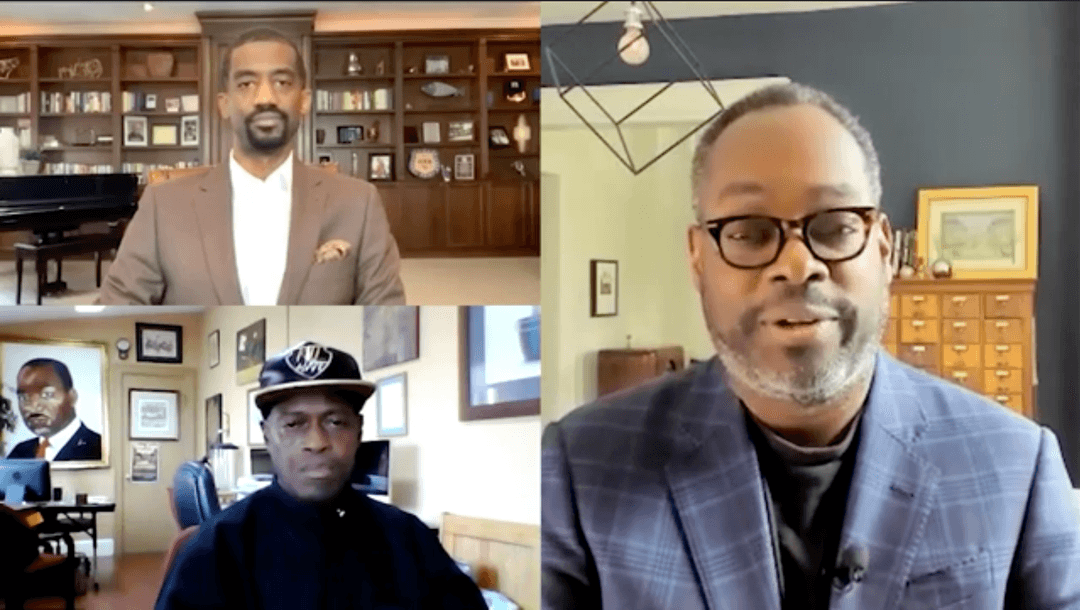Michigan Lt. Governor Garlin Gilchrist on the Roots of Racial Unrest
Jun 3, 2020
Pain and frustration over police brutality and racial justice have led to protests and demonstrations not only in Michigan, but nationwide. Christy McDonald talks with Lt. Governor of Michigan Garlin Gilchrist about what true policy changes can be made to combat systemic racism.
Watch Now:
[et_pb_video src=”https://www.youtube.com/watch?v=wtbV1k3Shj0&feature=youtu.be” _builder_version=”4.17.0″ _module_preset=”default” global_colors_info=”{}”]
Full Transcript:
Garlin Gilchrist, Lt. Governor of Michigan: We cannot leave any opportunity to participate and make sure that we are represented in a decision-making process on the table. So that means being involved in protests and demonstration, but also being involved in neighborhood work, being involved in legislative work, being counted in the census, voting in every election, all the way up and down the ballot.
Christy McDonald: Joining me now is Lt. Gov. Garlin Gilchrist. Garlin, it’s good to see you. I’ve got to ask you, how would you describe what we’re seeing here in the country and in Michigan in this past week and a half?
Garlin Gilchrist: Well, Christy, thank you for having me. You know, what we’re seeing is this collective it’s exhausting primordial scream from communities across the country, particularly black communities across this country who are just, yearning for justice, yearning for access to opportunity and just constantly dismayed when we see another life taken unnecessarily, unjustifiably and in a way that was completely preventable.
Garlin Gilchrist: But that is unfortunately the culmination, or just yet another culminating point of the years of prejudice and structural racism that led to the dismissive, dismissive treatment of black people and black bodies. So I think that’s what you’re hearing and seeing in communities across our state and across the country. I think people are stepping up and meeting to feel like their voices. They need to shout louder so their voices can be heard. And I think those demonstrations, frankly are warranted.
Christy McDonald: You’ve been very active on social media and Twitter and Facebook and speaking directly saying, I hear you, I see you. You’ve also been at some of the protests. What are people telling you and being able to reach people directly?
Garlin Gilchrist: Well, I think it’s important to go where people are. That’s my job as a public servant, to go where they are to listen and to make sure that we can ultimately use this office to be responsive to people’s needs. And so when I was on the west side of Detroit, I’m so what I saw was a group of young people who were ready for change, who were hungry, who were ready to be engaged.
Garlin Gilchrist: And so my message to them was that we cannot leave any decision-making opportunity on the table. We cannot leave any opportunity to participate and make sure that we are represented in a decision-making process on the table. So that means being involved in protests and demonstrations, but also being involved in neighborhood work, being involved in legislative work, and being counted in the census. Voting in every election, all the way up and down the ballot.
Garlin Gilchrist: That’s what we need and then we need to be involved in the accountability mechanism for public officials going forward. How can we design the right types of policy solutions that we want to see from law enforcement, whether it’s more civilian oversight, different use of force protocols, better, more training when it comes to de-escalation and or implicit bias, or recruitment of more diverse officers that look like the community or more investment in community policing.
Garlin Gilchrist: These are the sorts of things that people want to see. And so my message is let’s work together to make it happen.
Christy McDonald: Do you feel like you’ve had these conversations over and over and over again? And then how do you plan on taking your office as the highest-ranking black official in the state of Michigan? Now you have the Racial Disparities Task Force coming out of the COVID 19 crisis. How do you plan to shape that into policy that we can address the inequities here?
Garlin Gilchrist: Yeah, unfortunately, this has been a conversation for my entire life. I mean, I got pulled over unjustifiably for going 24-25 mph when I was on my way to high school in Farmington, for example, just because of what I looked like.
Garlin Gilchrist: So, you know, I understand that this is a problem that has existed and it rhymes with the issues that we’re seeing with the coronavirus when it comes to black people being disproportionately impacted, in part because we live in places that have an environment that is more poisonous, in part because we live in places where we have less access to the health care system.
Garlin Gilchrist: And so what I’m trying to do in this position with the support of Gov. Gretchen Whitmer is working to make sure that we have policies, the rescue response that we can make sure that the equitable investments in education and health care infrastructure are being made and directed so that we can make sure that we can respond specifically and say, you know what? Testing accessibility is the front door to treatment for vulnerable populations.
Garlin Gilchrist: So that’s why we stood up almost 30 testing sites in the hardest hit zip codes across the state that are primarily zip codes, where the majority of people who live there are people of color with who score high on Social Vulnerability Index due to the social determinants of health which include co-morbidities, lack of access to food and education resources, and also just, frankly, the systemic racism that has kept people down for far too long.
Garlin Gilchrist: So having these inputs into the decisions, I believe that’s quite different than what we see in the leadership in Michigan, and that’s reflective of the diversity of the leadership team that we have in our state not only with Gov. Gretchen Whitmer and I, but also Dr. Joneigh Khaldun, Chief Medical Executive. We have the most diverse leadership team in the country when it comes to responding to the coronavirus, and I believe that is an opportunity for us to demonstrate the impact of that.
Christy McDonald: What are you telling your kids?
Garlin Gilchrist: I mean, so my kids are my twins are six, and my baby girl will be one on Juneteenth this month and we’re letting them know that we just have to be careful. Right now, I think, you know, teaching kids good hand hygiene is never a bad thing. But as in terms of the coronavirus, when it comes to the demonstrations, we’re telling them that people are outside and they’re shouting because they want everybody to be treated fairly.
Garlin Gilchrist: They don’t want anyone to go outside and feel like they are in danger. And so they can see it, they can see it from our window and stuff like that. So they ask good questions. And we show them the things on TV that aren’t violent because of violence, frankly, is not representative of actually the spirit of the demonstration that will actually change.
Garlin Gilchrist: We don’t show them that. We do show them what it means for people to speak out and speak up. I used to be a community organizer in the early part of my career so they’ve actually seen this before, so it’s not new to them but we wanted to describe what it looks like here at home.
Christy McDonald: What are the conversations that you’re having now on a daily basis, coming out of all the protests that we’re seeing and people who are saying, look, now it’s time to have some different conversations than we have had before.
Garlin Gilchrist: You know, I’ve been really heartened that leaders and law enforcement agencies across the state have reached out and wanting to be supportive and productive and helpful, and they have ideas. We’ve seen legislators who already have legislation in the hopper that’s looking to change standards for training and for police and law enforcement agencies.
Garlin Gilchrist: And community leaders feel like we have an opportunity at this generational moment for more people to be engaged in this decision-making process. And so I think that we need to really pounce upon this opportunity. And I think that this pandemic of COVID 19, this what has felt like ever-present for my entire life and certainly for generations, this stain of racism and oppression, we have the ability to address both of these at once in some way, and I believe that we can make progress on both.
Christy McDonald: Let me ask you before I let you go about opening this state up. All of a sudden, the announcement came yesterday flurry of activity from people who feel all of a sudden that they’re going to be able to go out and be about again. What would you say in terms of either cautioning people or letting them still understand that we are still moving through this, even though much more is going to be opening up?
Garlin Gilchrist: The biggest thing is that the coronavirus unfortunately hasn’t changed. It’s still as contagious. It is still as deadly. We don’t have an antibiotic treatment. We don’t have a vaccine, so people still need to be careful. While it is true that the public health data and infrastructure and the testing capacity, the testing results have shown that we can move along our spectrum, our phased approach. We can do that.
Garlin Gilchrist: But we need to do so carefully. To be very clear, the safest thing you can do is stay home if you can, if you don’t have to leave. That is the safest thing you can do unambiguously. But if you go out, people need to wear their masks. People need to social distance. People need to wash their hands. And you know, frankly, in the demonstrations, I haven’t seen enough masks. I haven’t seen enough social distancing.
Garlin Gilchrist: We need to see more of that. So that does concern me. Like, I’m worried about people who are going out and fighting and yearning and calling for justice, but putting themselves at risk in the midst of a global pandemic. So people need to be vigilant about that as well, because in order for us to continue advocating we need to stay alive.
Christy McDonald: All right, Lt. Gov. Garlin Gilchrist, it’s good to see you. We’re going to continue to follow everything that happens here, and we appreciate your time.
Garlin Gilchrist: Thank you, Christy, stay safe.
Christy McDonald: It’s good to see you, you too.
Subscribe to One Detroit’s YouTube Channel & Don’t miss One Detroit Mondays and Thursdays at 7:30 p.m. on Detroit PBS, WTVS-Channel 56.
Catch the daily conversations on our website, Facebook, Twitter @DPTVOneDetroit, and Instagram @One.Detroit
View Past Episodes >
Watch One Detroit every Monday and Thursday at 7:30 p.m. ET on Detroit Public TV on Detroit Public TV, WTVS-Channel 56.
Stay Connected
Subscribe to Detroit PBS YouTube Channel & Don’t miss American Black Journal on Tuesday at 7:30 p.m. and Sunday at 9:30 a.m. on Detroit PBS, WTVS-Channel 56.
Catch the daily conversations on our website, Facebook, Twitter, and Instagram @amblackjournal.
Related Posts
Leave a Reply
Your email address will not be published. Required fields are marked*




























